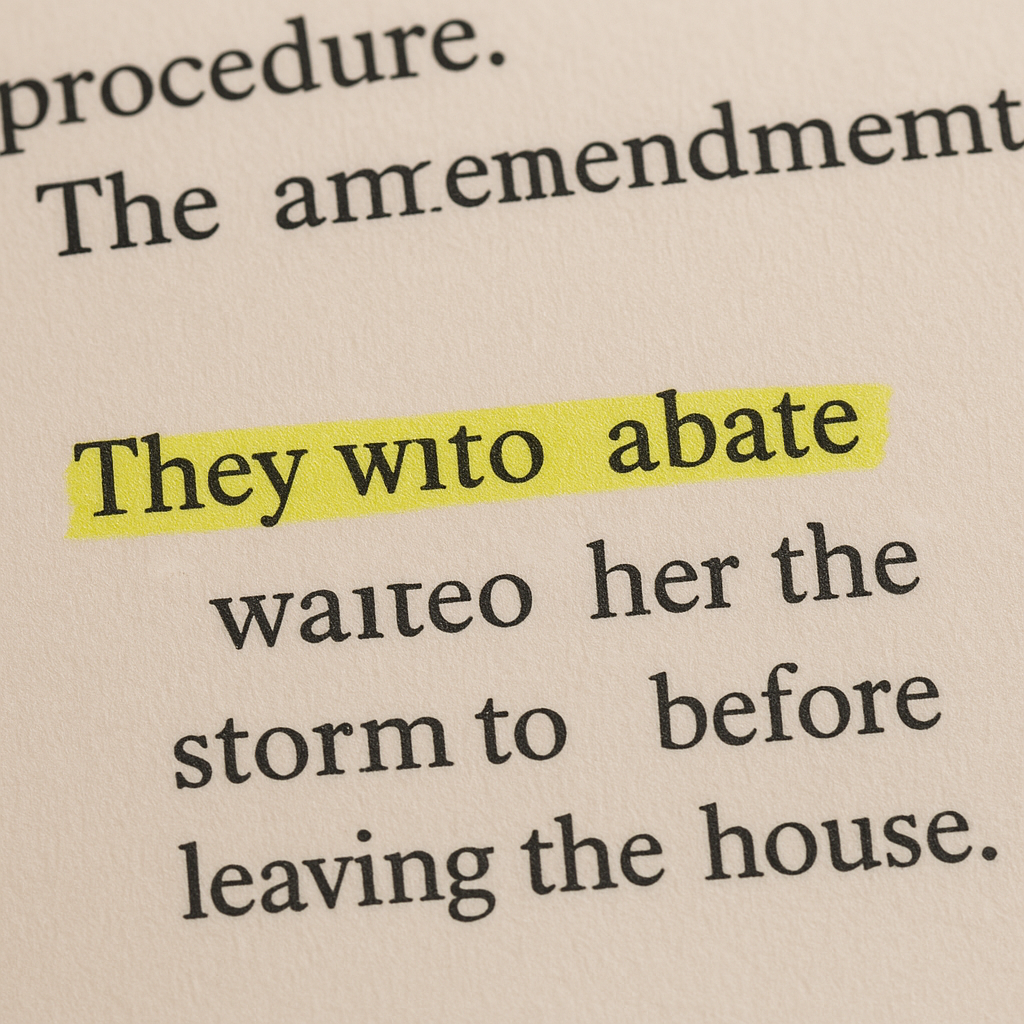📌 Introduction: Why Knowing “Abate” Matters
Abate meaning Language is power—and knowing the right word for the right situation can make your speech smarter and more precise. One such word is “abate”. It’s not commonly used in everyday conversation, but it’s powerful in writing, speaking, and academic settings.
Whether you’re preparing for exams like GRE or IELTS, improving your professional vocabulary, or writing better emails—knowing how to use “abate” can make a big difference.
📖 What is the Meaning of “Abate”?
Definition: The word “abate” is a verb that means to become less strong, to reduce in intensity, or to lessen something.
In simple terms:
- If something bad or intense goes down in level, it abates.
🔹 Cambridge Dictionary Says:
“To become less strong, or to make something less strong.”
➡️ Source
🔹 Merriam-Webster Defines It As:
“To decrease in force or intensity.”
➡️ Source
🔹 Dictionary.com States:
“To reduce in amount, degree, or intensity.”
➡️ Source

🧠 Word Origins: Where Does “Abate” Come From?
“Abate” comes from the Old French word abattre meaning “to beat down” and Latin battuere (“to beat”).
This origin makes sense—when you abate something, you are essentially “beating it down” or reducing its power or effect.
📚 Synonyms of Abate
Understanding synonyms helps you replace and vary your vocabulary while maintaining the same meaning.
| Word | Meaning |
|---|---|
| Diminish | To make or become less |
| Lessen | To reduce in size or importance |
| Subside | To calm down or become less intense |
| Decline | To go downward or reduce |
| Ebb | To gradually reduce or fade away |
| Dwindle | To decrease slowly in size or strength |
✅ Use these in place of “abate” to improve your writing.
🔥 Real-Life Examples of Abate in Sentences
Here are examples to help you understand how to use abate naturally:
- 🌀 The storm finally began to abate after three hours of heavy rain.
- 😠 Her anger didn’t abate until she received a sincere apology.
- 📉 The government hopes inflation will abate by next quarter.
- 🦠 As the virus abated, restrictions were slowly lifted.
📌 Grammar Focus: How to Use “Abate” Correctly
“Abate” is a transitive or intransitive verb, depending on context.
✳️ Intransitive Use (No object):
➡️ The noise finally abated.
✳️ Transitive Use (Has an object):
➡️ They took action to abate pollution.
📝 Verb Forms:
- Present: abate
- Past: abated
- Present participle: abating

🔊 Pronunciation Guide
Abate is pronounced as:
/əˈbeɪt/ – (uh-BAYT)
👉 Stress is on the second syllable: ba̲te.
Use it correctly in both formal and informal speech to elevate your communication.
📖 Common Phrases with “Abate”
- Abate the pain – to reduce physical discomfort
- Abate the noise – to make surroundings quieter
- Abate tension – to reduce stress or pressure
- Abate interest – when enthusiasm or curiosity fades
🤔 Antonyms: What is the Opposite of Abate?
| Word | Meaning |
|---|---|
| Intensify | To grow stronger or more extreme |
| Amplify | To increase in effect or size |
| Escalate | To rise quickly and dramatically |
| Aggravate | To make worse or more serious |
Knowing antonyms helps sharpen your understanding.
💬 Abate in Literature and Formal Writing
Writers often use “abate” in classic literature, formal essays, or political writing.
“Nothing could abate the King’s fury.”
— Example from historical fiction.
It adds a touch of formality and sophistication.

🧑🏫 Abate for Students: GRE, IELTS & TOEFL
“Abate” is a common vocabulary word in competitive exams:
- GRE Vocabulary Lists
- IELTS Reading Passages
- TOEFL Listening/Reading
Learning such words helps boost your verbal scores and overall confidence in English.
✅ Quick Recap Table
| Feature | Details |
|---|---|
| Word Type | Verb |
| Meaning | To lessen, reduce, or diminish |
| Synonyms | Diminish, Lessen, Subside |
| Antonyms | Intensify, Escalate, Aggravate |
| Pronunciation | /əˈbeɪt/ |
| Usage Areas | Formal writing, speech, essays |
🌐 Outer Links to Boost SEO
Here are helpful resources for further learning:

🧩 Related Words to Learn Next
Explore these words to grow your vocabulary family:
- Allay – to calm or put to rest (fear, doubt)
- Mitigate – to make something less severe
- Recede – to go or move back
- Quell – to suppress or put an end to
These words are often used alongside “abate” in similar contexts.
📘 Conclusion: Master “Abate” for Smarter Speech
Now that you know the full meaning of abate, its origins, how to pronounce and use it, synonyms and antonyms—you’re ready to use it with confidence in your writing and speaking.
Words like “abate” help you stand out, especially in professional or academic settings.
💡Next Step: Try writing 2–3 sentences today using “abate”. Make it part of your active vocabulary.

The Power of the Inevitable: Meaning, Usage, and Its Deep Impact on Life and Language